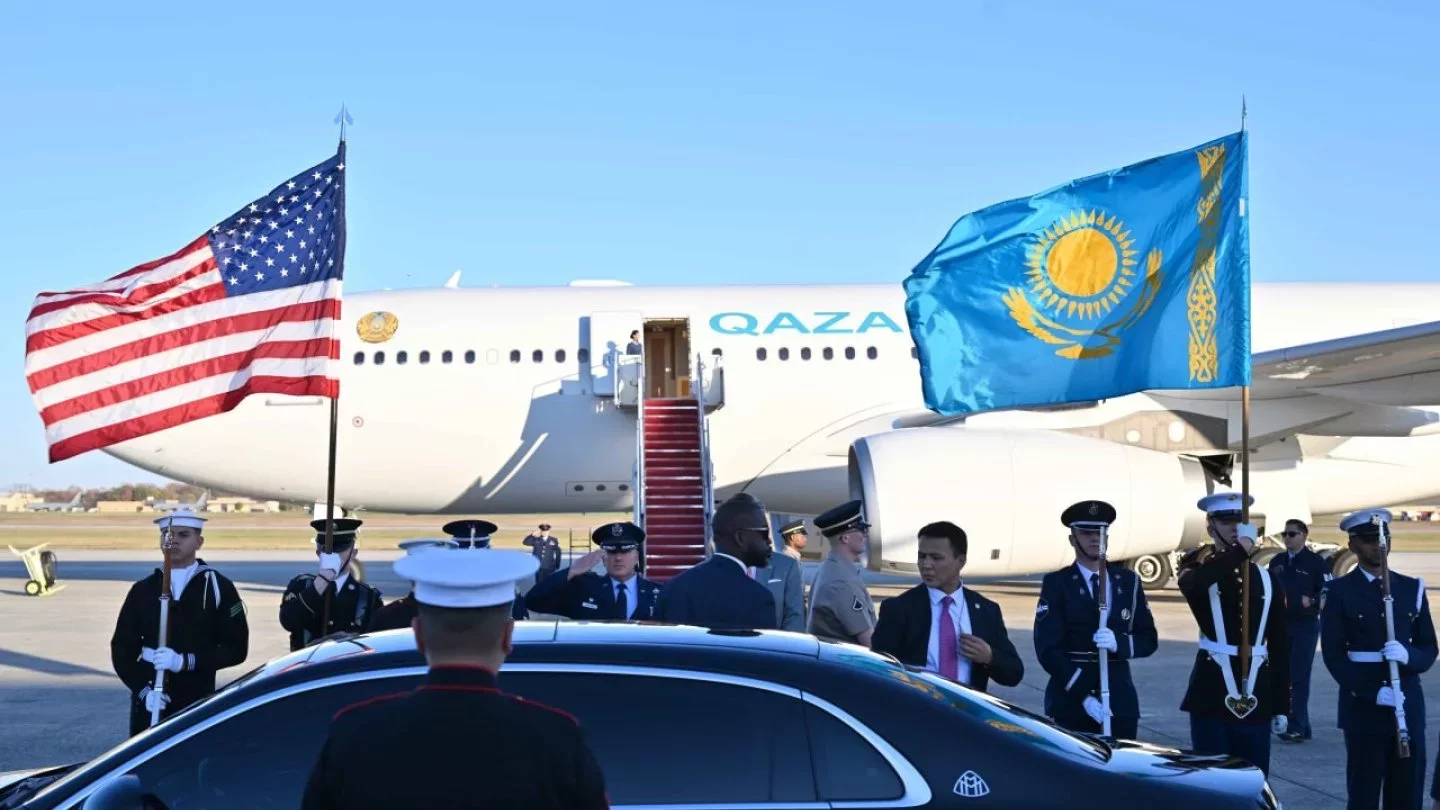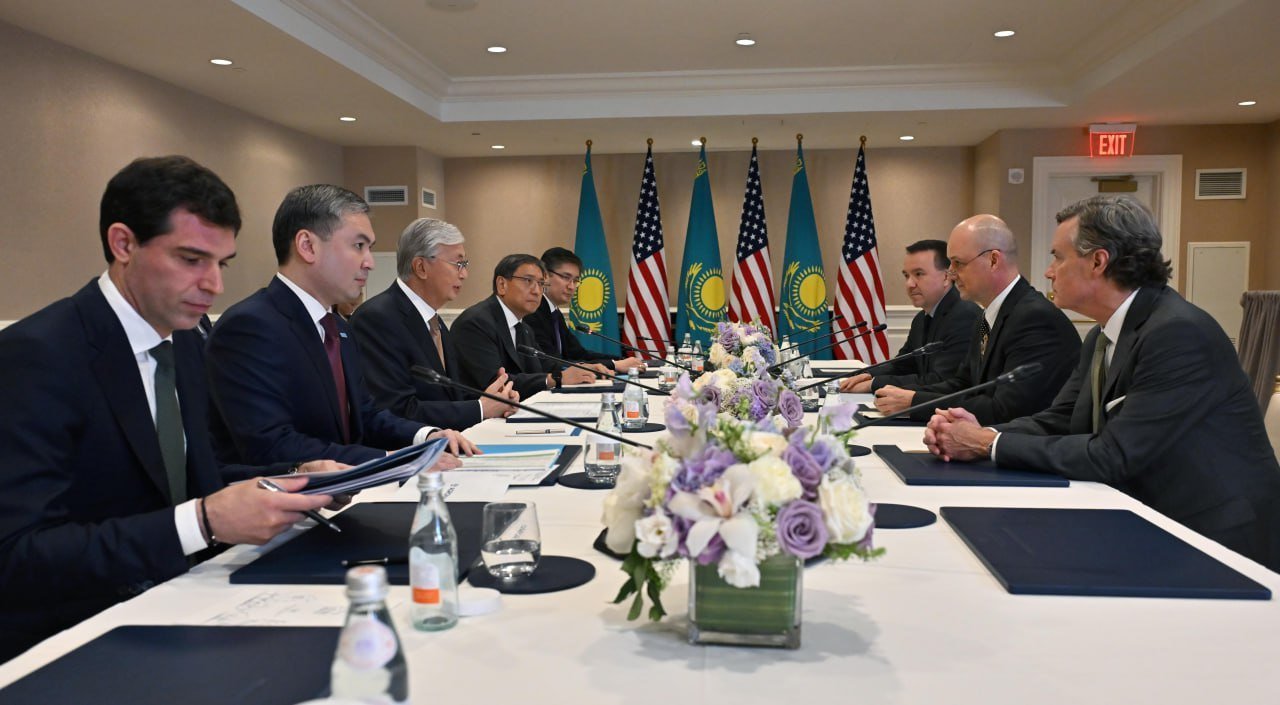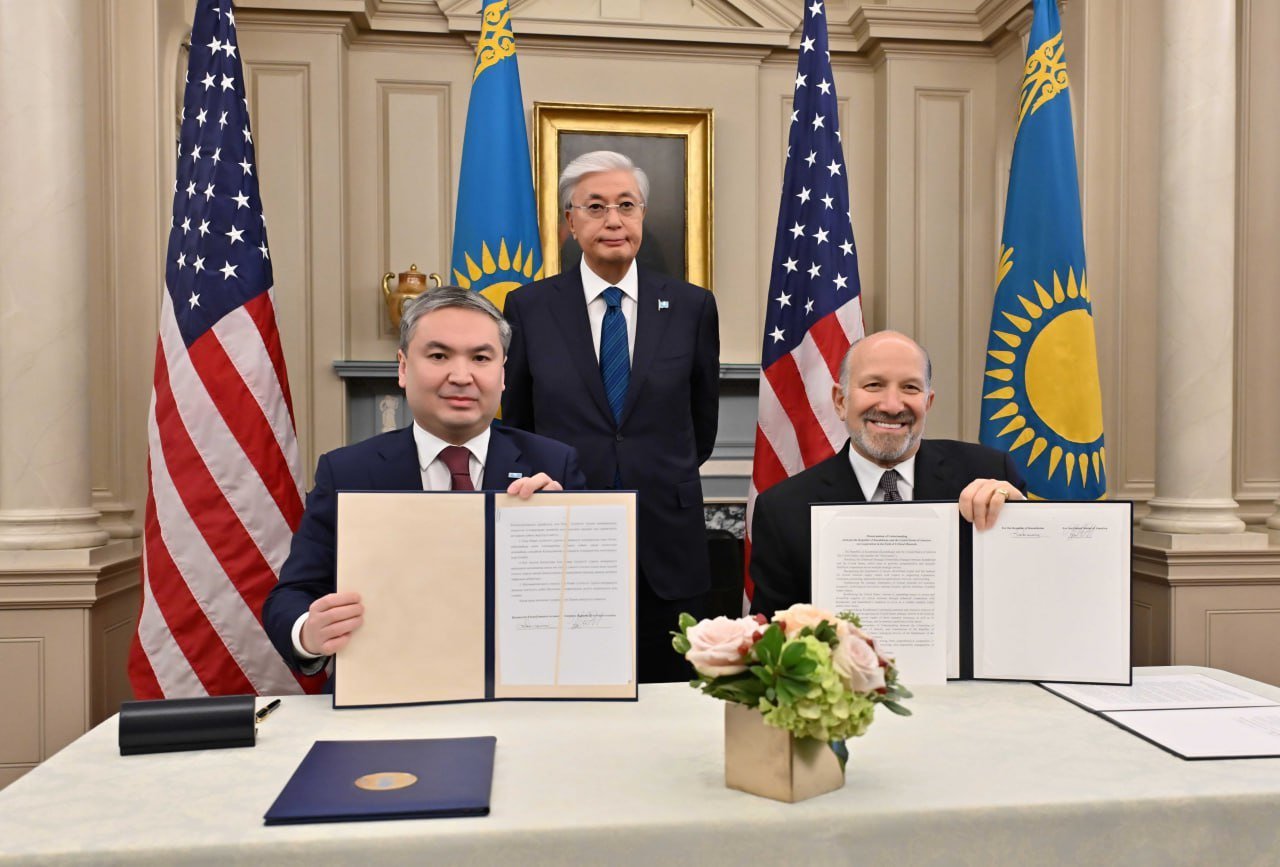Who Toqayev Took to Washington — and What He Brought Back
 Photo: Aqorda
Photo: Aqorda
President Qasym-Jomart Toqayev visited the United States, where he joined other Central Asian leaders at a summit. The Kazakh delegation returned home with business contracts worth $17 billion. But who will actually benefit from these deals — and why is Kazakhstan paying instead of receiving?
Orda.kz breaks it down.
Economist Arman Batayev analyzed the contracts in detail and found that most of the deals are not about attracting investment into Kazakhstan, but rather about capital flowing out of Kazakhstan and into the U.S.
7 billion dollars — Air Astana and Boeing. These are Boeing 787-9 aircraft. Impressive and prestigious, but not a purchase — a lease. That means Air Astana will be paying the Americans itself.
2.5 billion dollars — John Deere and AgromashHolding. Agricultural machinery production. Sounds good, but it’s still unclear who will actually provide the funding.
Most likely, Baiterek Holding will play the key role, Batayev wrote on his Telegram channel.
Which means again, it’s budget money, not private investment.
2 billion dollars — FRHC and NVIDIA. A project to create an exaflop-level AI center in Kazakhstan. But all the financing comes from Kazakhstan’s Freedom Holding Corp. NVIDIA is just the technology supplier. Again, it’s import spending.
1.6 billion dollars — KTZ and Citibank. A loan for purchasing Wabtec locomotives from the U.S. Another minus on the balance sheet — money goes out, debt grows. That deal, by the way, has already raised questions.
1.1 billion dollars — Tau-Ken Samruk and Cove Capital. The only deal that looks like a genuine investment in Kazakhstan — tungsten deposits. But even here, $900 million is a loan from the U.S. Eximbank.
There’s also a $300 million deal to buy American air taxis — which many people believe will serve the country’s wealthy elite rather than ordinary people.
The city isn’t even finished yet, but they’re already dreaming up air taxis. Anything to avoid fixing the roads, people joke online.
Next on the list are partnerships with OpenAI, the Ashmore Healthcare clinic, a cable manufacturing project, and several education initiatives.
It all sounds progressive — but in every case, Kazakhstan is the customer, not the beneficiary.
I fully understand that the announced $17 billion are mostly memorandums and letters of intent. The main outcome of the visit is not U.S. investments in Kazakhstan, but rather Kazakhstan’s investments in the U.S. production sector. The country is effectively financing American industry by buying aircraft, agricultural machinery, locomotives, and electric aircraft. Then again, perhaps that’s inevitable: Kazakhstan traditionally exports raw materials and imports the most advanced, capital-intensive products, Batayev concluded.
Who Went With The President?
The national company Kazakh Invest provided Orda.kz with the list of business delegates.
What immediately stands out are names familiar from the Nazarbayev era.
Oleg Novachuk — one of the owners of KAZ Minerals.
Shukhrat Ibragimov — son of Patokh Chodiev, heir to the “Eurasian trio."
Andrey Lavrentyev — Allur Group, automotive industry. When ArcelorMittal left Kazakhstan after a series of mining accidents, Lavrentyev bought out AMT, positioning himself as a major player under Toqayev.
Interestingly, oligarch Vyacheslav Kim is not mentioned in the list, even though he was involved in the deal to purchase American eVTOLs — already criticized as another luxury for the rich.


Two Women in The Delegation
Joining the president at the summit were two Kazakh businesswomen.
Assem Mamutova, president of the Ust-Kamenogorsk Titanium and Magnesium Plant, represented one of Kazakhstan’s key industrial enterprises — owned by six foreign companies. The main shareholder is Belgium’s Specialty Metals Holding Company. Other co-owners include Singaporean firms New Asia Investment Group, Metacapital Investments, Metal Resource & Technology, New Metal Investments, and Swiss-based Kolur Holding AG.
Mamutova is not only the CEO but also a regional assembly deputy from the Amanat party. She has led the plant for years — in 2017, she personally reported to then-president Nazarbayev about the company’s growth and major projects.
In 2021, her name appeared in an environmental scandal after the plant was accused of releasing a large amount of chlorine gas. Locals were dissatisfied that management failed to explain what happened, and journalists were denied access. Environmental activists later demanded that the regional akim revoke her deputy mandate.
The other woman in the delegation was Dinara Shukizhanova, head of AgromashHolding KZ and a former member of parliament.
You don’t have to be the president’s daughter or come from a rich family to sign a billion-dollar deal and celebrate our country’s success abroad alongside Mr. President, she wrote on Instagram.
Now for the rest of the new business showcase:
Margulan Ospanov, director of PepsiCo Kazakhstan; Askar Omarov, co-owner of BI Group; former Russian citizen billionaire with a Kazakhstan passport, Timur Turlov; Higgsfield AI CEO Alex Mashrabov; humanitarian technocrat and Bilim Group director Rauan Kenzhekhanuly; and Harvest Agro head Almaz Alsenov.
One curious detail: after Toqayev’s visit to New York in September, he dismissed Kazakhstan’s ambassador to the U.S., Yerzhan Ashikbayev, and Foreign Minister Murat Nurtleu.
Analysts believed the move was partly due to poor organization of that trip, where few businesspeople joined the delegation. At that time, Washington signed a deal with Tashkent for dozens of Boeing 787s worth $8 billion, while Kazakhstan showed little comparable investment interest.
Analysts caution about the commitment to Tashkent's deal.
Original Author: Zarina Faizullina
Latest news
- From Honor Huard to Friendship Square: How Moscow Welcomed Toqayev
- Before Meeting Putin: Toqayev Outlines Joint Projects
- President Toqayev to Meet Putin in Moscow on November 12
- Dubai-Based Company Plans Entry into Kazakhstan’s Taxi Market
- Romania Probes Alleged Ammunition Scheme Linked to Kazakhstan
- Kazakhstan: Authorities to Investigate Army Conscription, Medical Exams After Protest by Soldiers’ Mothers
- Who Toqayev Took to Washington — and What He Brought Back
- Syria: U.S. Temporarily Suspends Caesar Act Sanctions
- Qorqyt Ata Special Economic Zone Receives Industrial Status
- Vice Minister Comments on Condition of Yerbayan Mukhtar
- Protesters in Tbilisi Marched from Parliament to Supreme Court — The Caucasian Knot
- Prime Minister Orders Acceleration of Geological Laboratory Construction in Astana
- Zulfiya Suleimenova Appointed Special Envoy at the Foreign Ministry
- Khasan Kasymbayev Sentenced to 12 Years in Prison
- Why Did Washington Bring the Five Central Asian Leaders to The White House?
- Half of Almaty Residents Want to Leave the City for Winter Because of Smog
- U.S. Eases Sanctions against Syria Following Trump-al-Shaara Meeting
- Who Owns the Land Around the Baganashyl Orphanage?
- Toqayev Reviews Supreme Audit Chamber’s Work, 2026 Priorities
- World’s Highest UN-Themed Mural Unveiled in Shymbulaq

